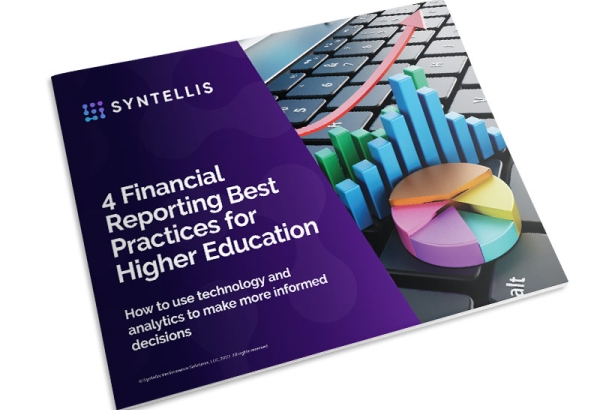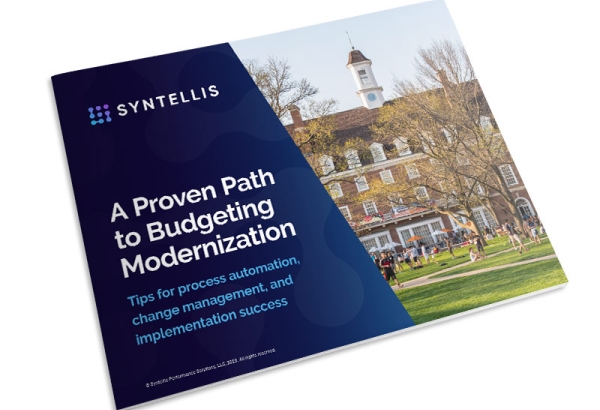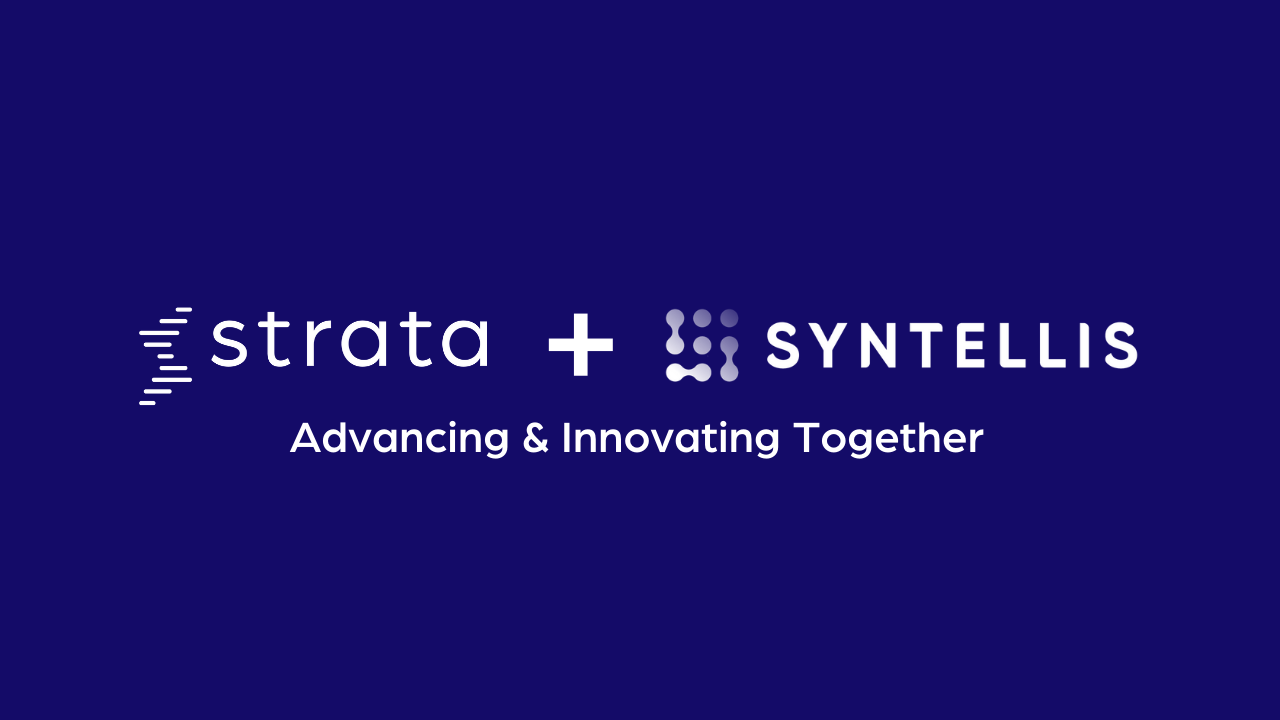As a $3.8 billion enterprise, the University of Massachusetts (UMass) needed advanced tools to employ best practices in budgeting and demonstrate its fiduciary responsibility to its students and stakeholders. With five campuses and a president’s office, the university system also wanted to unify its reporting efforts to generate consistent, deep data for its board of directors.
To address these needs across its campuses, UMass implemented Syntellis’ Axiom™ Budgeting and Forecasting and Axiom™ Reporting and Analytics.
Selecting a standardized yet flexible solution
Prior to the Axiom implementation, finance leaders at UMass’s five campuses and president’s office each had different budgeting tools and processes — most using Excel spreadsheets. This created significant differences in timing, scope, format, and methodology across the campuses.
To select a tool that would accommodate the needs of multiple campuses, budget directors from across UMass were involved in the decision-making process from the beginning.
“We went out to procure the tool with all of us sitting at the table,” said LeeAnn Pasquini, Associate Vice President of Administration and Finance for the UMass President’s Office. “We really walked through the design and build together. We wanted to keep the tool as consistent as possible, so we weren’t making five different tools for five different campuses.”
While Axiom provides a standardized platform, customization is possible to meet unique customer needs. For example, each campus can establish its own budget drivers and workflows.
“Creating consistency makes reporting more valuable and allows us to do better analysis.” – LeeAnn Pasquini, Associate Vice President of Administration and Finance for the UMass President’s Office
Generating consistent data across campuses
Not only were most of the campuses using spreadsheets prior to Axiom, they weren’t gathering consistent budget data — which is essential to effective planning for such a complex university system.
“From the president’s office standpoint, we are working with the campuses to better understand more details of their plans,” Pasquini said. “But we can only do that when the information is gathered consistently.”
Axiom enables UMass to gather the same information from each campus by college and department, including revenue and expense details. That information then can roll up to the university level.
“Creating this consistency makes reporting more valuable and allows us to do better analysis,” Pasquini added.
“By digging a little bit deeper and having that detail behind each campus, it allows tracking during the year to ensure campuses can achieve the budgeted margin.”
Driving informed decisions
With the campuses’ former manual, Excel-based processes, the university’s finance leaders had no opportunity to realign and revise budgets mid-year or conduct long-term planning. By gathering consistent data, the university can make more informed decisions as the year progresses. Overall, the campus leaders are pleased with the ability to easily make adjustments to their budget with Axiom.
“Departments were used to pushing and pulling a spreadsheet,” Pasquini said. ”The tool is seeded with prior year actuals and position data which gives them the base information needed to plan. Once the budget is complete, we can load it into our financial system and track against that plan during the year.”
Empowering campuses to reduce costs and meet budgets
UMass, like other colleges and universities across the country, faces enrollment challenges as well as fixed cost increases due to inflation. To help address these financial strains, institutions must be able to easily identify areas for potential cost savings.
Implementing Axiom allows for “more discipline and rigor” to the budgeting process, explained Pasquini. “Building these budgets at a detailed level allows us to look a little bit deeper and analyze areas to better understand opportunities for cost realignment and savings opportunities,” she said.
Axiom’s reporting capabilities also enable individual campuses to take a proactive approach to achieving their budgets through initiatives such as strategies to grow enrollment, reduce non-labor costs, or recruit and retain a reliable workforce.
“We work with the campuses to dig deeper on those solutions,” she said. “By digging a little bit deeper and having that detail behind each campus, it allows tracking during the year to ensure campuses can achieve the budgeted margin.”
“Axiom allows us to provide deeper analysis and spend more of our time looking at data and analyzing information rather than rolling up spreadsheets.”
Deep reporting capabilities for the board
Without Axiom, the university faced system-wide reporting challenges, especially when rolling up reporting from each campus and combining it for board-level reporting.
“We were only getting summary-level information from the campuses — the highest level of revenue and expense information — to report to the board,” explained Pasquini. “In partnership with the campuses, we can access more detailed information. It strengthens the analysis that we’re doing internally diving deeper into college- and department-level information.”
This is especially important as the board continues to request more and deeper data to make informed decisions. The platform enables the university’s finance leaders to report vital information to the board, including revenue, expenses, enrollment (including enrollment by career, by residency, by new and continuing students), employment, and other key financial ratios.
Ultimately, Axiom empowers UMass administrators to spend less time collecting data from across its campuses and more time putting that data to use. “Axiom allows us to provide deeper analysis and spend more of our time looking at data and analyzing information rather than rolling up spreadsheets,” Pasquini said.
Learn more about Axiom in higher education

4 Financial Reporting Best Practices for Higher Education

A Proven Path to Budgeting Modernization



